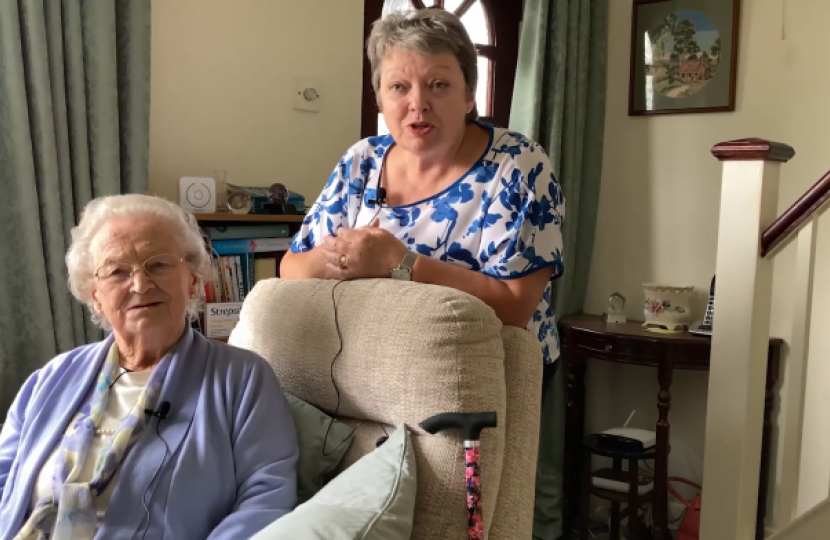Hi-tech sensors fitted in everyday objects around the home are enabling older people to live independently for longer as part of a pioneering scheme in Surrey.
The county council teamed up with Mole Valley District Council to trial the use of a revolutionary home monitoring system which can help identify early warning signs of declining health or mobility and help prevent falls.
Sensors fitted to appliances such as kettles and fridges are used to monitor movement and daily routines in a discreet way without the need for cameras or microphones, with all the information fed into a central dashboard which is monitored by an alarm receiving centre (ARC). If subtle changes are detected which may indicate something is amiss, the individual, their family and health or care worker is alerted.
The trial scheme involving 53 residents in Mole Valley proved so successful at enabling greater independence and providing reassurance to families that the pilot has been extended to two further Surrey areas, Tandridge and Reigate and Banstead.
The findings from the expanded pilot will then help to roll out the technology to other parts of the county and also enable people who fund their own social care to gain access to the system. Self-funders would be able to purchase the devices and a subscription to monitoring services.
Sinead Mooney, Surrey County Council’s Cabinet Member for Adult Social Care and Health, said: “This is a really exciting development in our use of new technology to help residents with daily living because it enables us to be proactive about picking up on problems and preventing them getting worse.
“For some time in Surrey, we’ve been using technology to help keep people safe at home – such as alarms to call for help if needed – but this system which analyses information from a network of smart gadgets around the home takes that to a whole new level.
“Now that we’ve tested the technology with our residents and staff, working with our trusted and forward-thinking partner Mole Valley District Council, we can really see how it supports people to live independently in their own homes and reduces the need for them to go into residential care or be admitted to hospital.
“Feedback from families has been really positive too because they’ve been able to check in on their loved ones remotely which has given them reassurance they are safe at home.
“The service is intended to enhance and complement face-to-face care and is one of a number of ways in which we’re looking to harness technology to transform and modernise care for the benefit of our residents.”
For the scheme, the county council partnered with Mole Valley Life, the district council’s technology enabled care service.
The pilot scheme began in January and worked with people who were becoming frail or had recently been discharged from hospital.
Using technology from data and analytics company Cascade3d, a network of sensors and smart plugs was installed in their homes and linked to a dashboard which is monitored around the clock from Mole Valley’s alarm receiving centre (ARC) in Leatherhead.
In one example of how the technology helped a resident, the system flagged an increase in frequency of visits to the bathroom outside the normal routine of the person, raising concerns of a urinary tract infection. The community nurse confirmed the diagnosis and secured antibiotics, probably avoiding a return to hospital for the resident.
This pioneering technology can be complemented by more traditional Technology Enabled Care (TEC), such as a falls detector, which when activated, will send an alert to the ARC which will be able to escalate the finding in line with the individual’s care plan, speeding up help and support.
Copied from Surrey News



